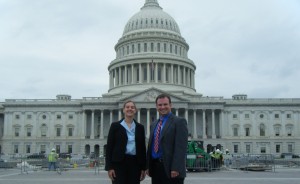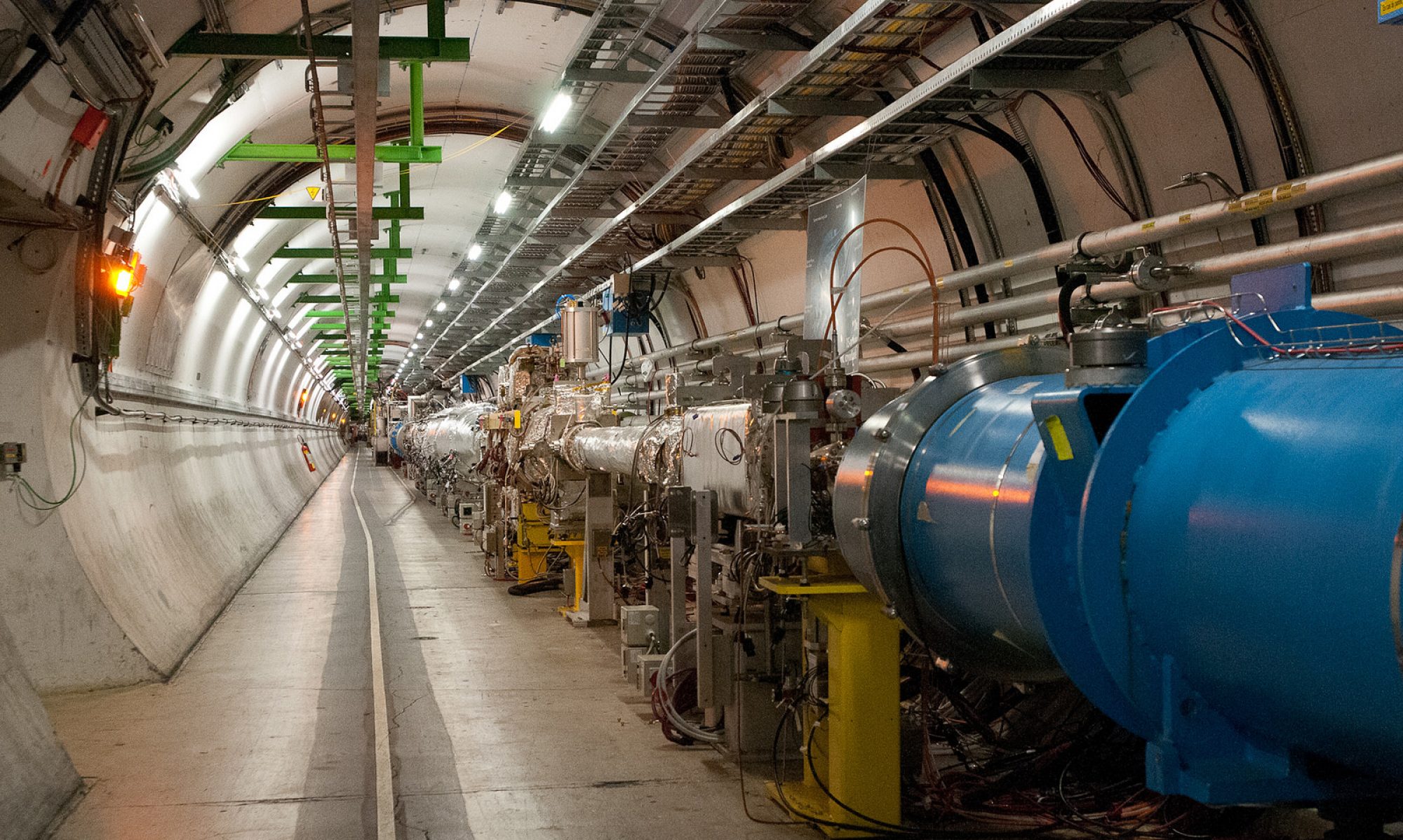 This past week, three user organizations joined forces yet again in a well-organized and well-executed act of science diplomacy and headed to Washington D.C. to carry messages to Congress. Messages were also received, and will here be delivered in a short form for the community to heed. A more detailed report of this trip will be formulated over the next week and made available to the community through the user organizations.
This past week, three user organizations joined forces yet again in a well-organized and well-executed act of science diplomacy and headed to Washington D.C. to carry messages to Congress. Messages were also received, and will here be delivered in a short form for the community to heed. A more detailed report of this trip will be formulated over the next week and made available to the community through the user organizations.
The trip included 49 participants, with about 25% from SLAC, 31% from USLHC, and the rest from Fermilab. We met with over 200 Congressional offices, including a significant number of even short face-to-face meetings with members of Congress themselves. In addition, we sent small groups to the President’s Office of Management and Budget and to the science agencies, NSF and DOE Office of Science. A few of us were also invited to have drinks after normal Congressional business with Congressman Bill Foster, who is a physicist with significant business experience and now represents Fermilab’s district.
Messages from Congress
The biggest message from the Congress as a whole is that they still very much believe in funding science. From the Democrats who clearly control the Congress, to the most fiscally conservative Republicans, science is seen as an investment worth making, well thought-out and well-managed by the agencies overall. They still support the America COMPETES Act that passed in 2007 and laid out a blueprint for doubling the combined physical sciences budgets of NIST, NSF, and DOE in something like 7 years.
There were other messages, of course, from a smaller number of Congresspersons but no less important. There are many in the general body of Congress who still do not understand the significant role of the DOE Office of Science in funding basic research that benefits the nation and their districts. They hear “science” and they think of NIH or NSF, not DOE. DOE is seen as a technology agency, not a research agency or a steward of research tools. We have a LOT of work to do here, both in the community and in the agencies themselves.
Another significant messages regarded our field. There are key members of Congress with significant understanding of particle physics who caution us that we must commit to sending our best and brightest to the agencies to do 5-10 years of service. This is needed so that well-informed and highly regarded members of the community are making policy, not just sitting back and complaining about it. Our field, mainly due to the way universities view such work and due to the way we as colleagues view that work, holds the best close to the vest and sends “failed” candidates, those who didn’t get faculty jobs or those who didn’t have exceptional careers in the field, to Washington. One member of Congress noted that this is a sure recipe for the destruction of our field, and change needs to happen.
A final message was this: this year may be an easy one, and next year may be much, much harder. That is because this is the year that Congress took out a huge mortgage on the future. Next year, if things don’t start to improve, they will wake up and realize they cannot afford the mortgage. They will panic, perhaps, and make cuts across the board. Science may not survive that, and we may yet again go from the boom to the bust, the kind of bust that causes 20% layoffs again. It is imperative that we keep the dialogue going about the centrality of science to the economic solution, hope for better times but plan for worsening ones.
Messages from Office of Management and Budget
The conversation at OMB this year was a more casual one than in years past. The strong message that came through this year is the President’s commitment to science, even in worsening times. That said, the plan is to keep the FY10 budget flat. This is because the science agencies are overwhelmed with Recovery Act and FY09 money, and flushing that through the system needs to happen responsibly at a time when they are crunched for staff. FY10 will be flat, but have the arc of Recovery Act money on top of it, effectively bringing it to the level of the America COMPETES Act. FY11 will see a growing budget again.
The other large message was about DOE’s Office of Science. While there is a recognition that some awakening is happening, there is still frustration that DOE is not managing its brand. Congress still doesn’t get what they do overall, and even the agency itself seems not to understand the breadth of its own program. Change needs to happen here if we ever hope to have the effective science policy the community deserves.
Messages from NSF and DOE
We are still digesting these, and while I was not personally present on the NSF visit I can say that they clearly made their priority of moving DUSEL forward a top one, and a big topic of the conversation. Underground science is a critical focus of the particle physics and astronomy program at NSF. There was some frustration expressed about how fast LSST is moving itself forward on private money, even a sense that they are dangerously ahead of the agency. I got this information second-hand, but it was clearly weighing on the mind of the person reporting it to me.
From DOE, we got a sense both of optimism and caution. The optimism is that things will improve in the country, and the path ahead as planned by the America COMPETES Act will hold. The amount of money being handled by the agency is being treated with caution of the same scale as the increase. There is a concern that if a bust follows the boom this year, universities might suffer, but the agency seems confident it can prepare for that scenario. The President has tasked the nation to spend more on science, and the head of the DOE has tasked the basic research parts of the agency to prepare for growth. We learned that the NASA community has expressed some concern that it’s not part of this focus, but the statement from the top has been clear: the physical science agencies will move ahead.
Summary
Be positive, but proceed with foresight and planning. Know that science is at the top of the nation’s priorities, but we lack a firm champion in the Senate. The science agencies stand ready to deliver, albeit in the face of extreme scrutiny and without the personnel to do it as quickly as is preferred. Prepare for next year, and keep in touch with Congress so they don’t forget we are people too.


